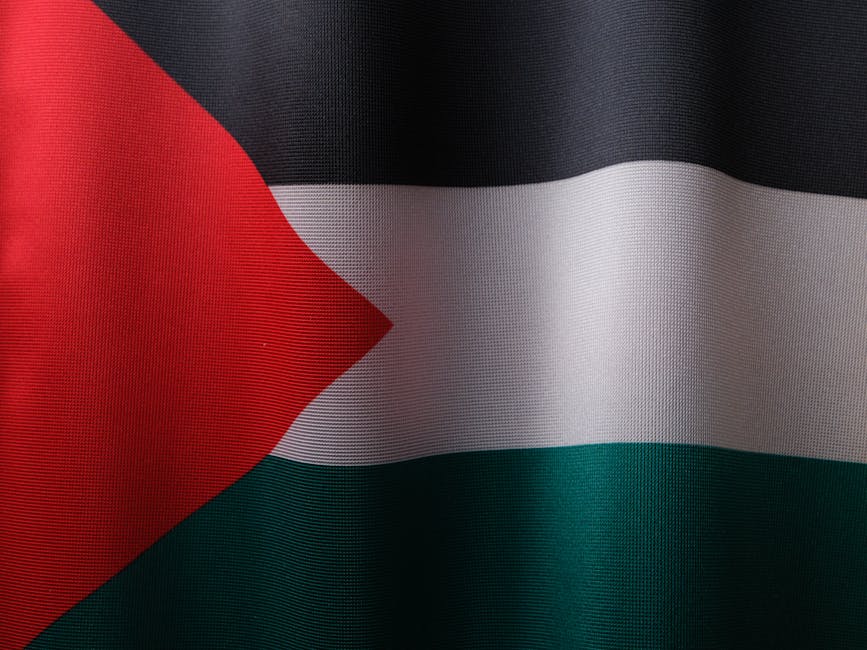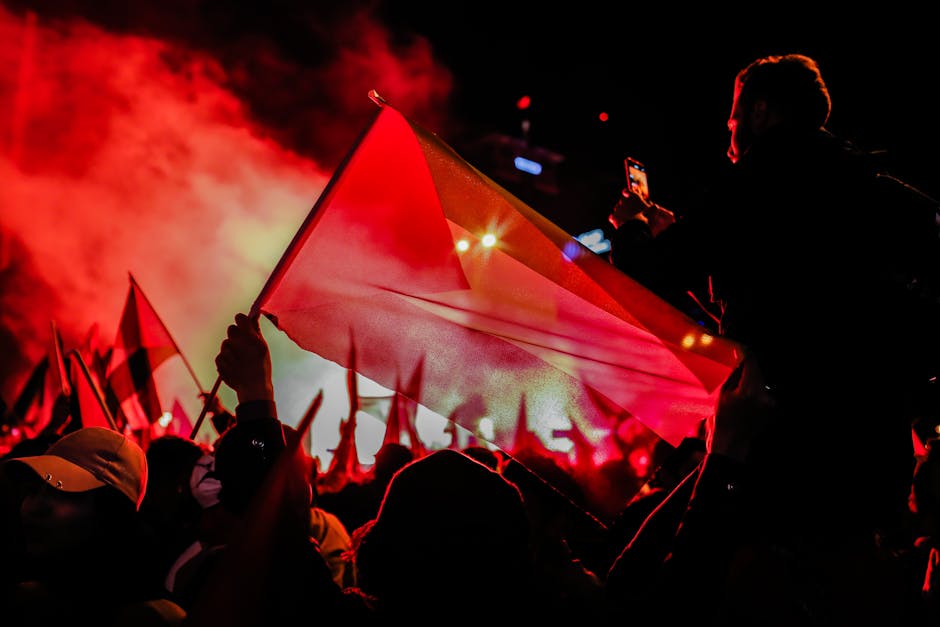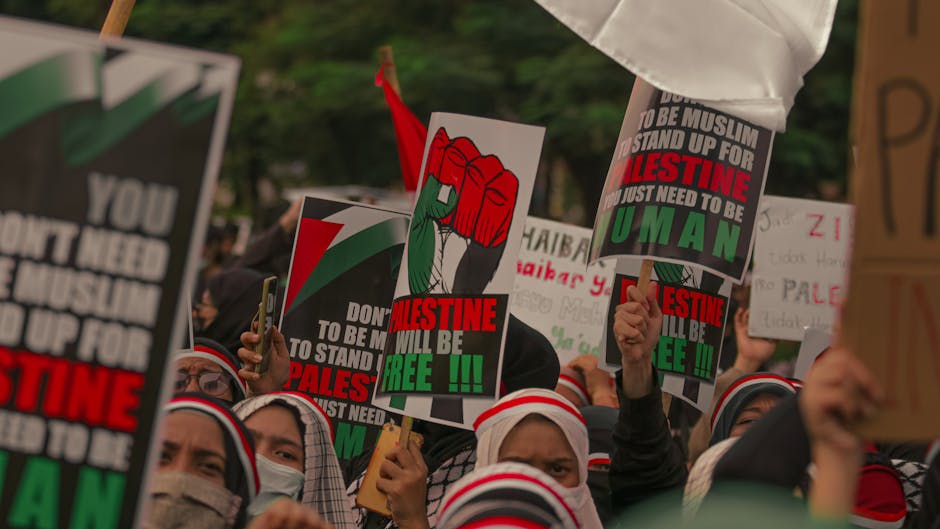Poems about Palestine capture the vibrant soul of a land steeped in history, conflict, and enduring beauty. These poems serve as a window into the hearts and minds of those who call this land their home. Through rhythmic verses and evocative language, poets paint vivid pictures of the land, capturing its tumultuous past, intricate present, and uncertain future. Each poem becomes a personal narrative, weaving together stories of resilience, hope, and longing.
31 Powerful Poems About Palestine
Olive Trees of Nablus
Ancient sentinels of Palestine’s heart
Where prophets walked, where legends start
Their gnarled branches stretch to the sky
Witnesses to the passage of time
Their leaves rustle with whispers of the past
Echoes of a history that will forever last
Their roots dig deep into the earth below
A symbol of resilience, for all to know
Walls of Separation
Razor wire, concrete, and steel
Dividing lives, crushing what’s real
A barrier to hope, to love, to peace
A monument to fear, to hate, to cease
In the silence, children’s laughter fades
As dreams are crushed, and futures are made
In the shadows, freedom’s light grows dim
A generation lost, in this endless whim
The Forgotten
In the alleys of Gaza, a story’s told
Of lives lived in the darkness, growing old
Their voices silenced, their names unknown
Their existence, a mere whisper, in the zone
Their eyes, like lanterns, shine so bright
A glimpse of humanity, in the darkest night
Their hearts, like drums, beat with every pain
A cry for justice, in the driving rain
Return to Haifa
The scent of orange blossoms, sweet and strong
Haifa’s hills, where love and longing belong
The waves of the Mediterranean, blue and wide
A place to call home, where the heart can reside
The old stones whisper secrets of the past
Of memories etched, like the lines on a face
The wind carries the whispers, of those who’ve gone
A longing to return, to the place they once called home
The Kuffiyeh
A symbol of resistance, of pride and of might
A scarf that wraps, the heart and the light
A checkered pattern, of black and white
A story woven, in every thread and every stitch tonight
It shelters the face, from the desert’s burning sun
A shield against, the occupation’s gun
It waves high and proud, in the hands of the brave
A beacon of hope, in the darkest of caves
Exile’s Lament
In foreign lands, I wander, lost and alone
A stranger in a strange land, without a home
The memories of Palestine, a distant, fading light
A longing to return, in the dark of night
The wind whispers secrets, of the place I left behind
The scent of olives, the taste of the olive tree’s mind
My heart, a heavy burden, of the stories untold
A soul, forever yearning, for the homeland of old
The Refugee’s Dream
To return to the village, where ancestors rest
To walk the narrow streets, where childhood memories nest
To feel the warmth of home, where love and laughter dwell
To rebuild, to restart, to begin anew to tell
The dream of return, a fire that burns so bright
A beacon of hope, in the darkest of nights
A promise to the homeland, to the land that I adore
To come back home, forevermore
Enjoying these poems? You can also create your own poems with our Advanced AI Poem Generator.
A Land of Struggle
In Palestine’s ancient soil, where olive trees abide
A struggle rages, where freedom’s right is denied
From Gaza’s walls to West Bank’s rocky ground
The cry of “free Palestine” echoes all around
The world may turn a blind eye, but we will not forget
The stories of displacement, of homes forsaken, of lives beset
By occupation’s shackles, by walls that pierce the sky
By the steadfast hope that one day, freedom will not die
Roses of Jericho
In Jericho’s ancient city, where ancient stones abide
Roses bloom in secret, amidst the Israeli army’s stride
Their thorns a reminder of resistance’s might
Their beauty a testament to freedom’s light
In this land of checkpoints, where life is a chore
The roses of Jericho bloom, forever more
Their scent a whisper of hope, a message clear
That Palestine will rise, and its people will persevere
The Last Fisherman of Jaffa
On Jaffa’s shores, where fishermen once did ply
The last of his line, the memories begin to dry
He thinks of fathers, who once set sail
Of brothers, who gave their lives, their fate to hail
He rows his small boat, the sun dipping low
The sea’s dark waters, a reminder of what he knows
That one day, fishermen will sail once more
Free to thrive, their nets to cast, their stories to explore
Children of the Naksa
On this day, we remember the ones who’ve fallen
The children of the Naksa, their dreams forsaken, their stories unspoken
Their laughter silenced, their smiles wiped away
Their freedom a distant dream, in a world that’s gone astray
We hold their memories close, a bittersweet refrain
Of what could’ve been, of what remains
Their innocence lost, their lives cut short
Their stories a reminder, of what we must resort
A Wall of Shame
The wall stands tall, a barrier to the soul
A divider of hope, a cruel, inhuman role
It cuts through fields, it cuts through homes
A piece of metal, a heart of stone
It’s a reminder of the world’s indifference
A symbol of the Occupation’s pitiless existence
But from the cracks, a glimmer of hope appears
A beacon of defiance, a message that clears
The wall may stand, but so will we
The people of Palestine, fighting for their humanity
Sinai Sunsets
In Sinai’s desert skies, the sun sets red and low
A reminder of the Exodus, of freedom’s distant glow
But here, in Gaza’s occupied land
The sun sets on a people, lost and unplanned
Their freedom a distant dream, their future unsure
Their hopes and fears, a fragile, flickering lure
The desert’s vast expanse, a reminder of what’s been lost
A people’s longing, for a life that’s been the cost
Scars of Sabra
Sabrá, a city of memories, of pain and of woe
A city that’s seen the worst, of humanity’s inhuman flow
The scars of Sabra, a reminder of what’s been done
A testament to the Occupation’s brutal, bloody sun
The children of Sabra, their smiles and laughter silenced
Their innocence lost, their lives cut short and maimed
The streets of Sabra, a graveyard of dreams
A city that’s seen the worst, of humanity’s darkest schemes
Land of Pride
In streets that echo with ancient tones
Where olive trees stand forever green
We find our strength, our hearts resume
As Palestinian identity is screened
Through walls that breach, our voices rise
A cry for justice, a cry that prize
The struggle for a homeland free
From occupation’s heavy decree
Our children’s laughter, our women’s sigh
Our men’s resolve, our children’s cry
In every waking moment, we’re told
The story of our history, so bold
Of heroism, of love and passion
Of lives that shone like a beacon’s fusion
But still we rise, like the morning sun
Unbroken, unshaken, till our work is done
For Palestine, our forever home
Where freedom’s path is where we roam
Torn Pages
A story torn, a narrative worn
A history read, with ink that’s turned to corn
These pages worn, by time’s cruel might
A people’s legacy, fading into night
Like a book torn, with no words left to say
Leaves a silence, where a story would play
But in the margins, a message remains
A testament to a people’s hearts and pains
The scars we bear, the walls we face
The checkpoints, the endless time and space
The fear and doubt, the anger and the pain
A nation struggling, yet refusing to remain
In a world of confinement, we yearn to be free
To write a new chapter, a new destiny
With every word, we craft a new page
A chronicle of hope, in a nation’s stage
Lazarus’ Song
I lay in wait, for the time to rise
From the tomb where hope had died its sighs
For in the darkness, I heard a call
To rise again, to stand tall
A century’s silence, broken now
As Palestinians reclaim their vow
To resist, to fight, to never yield
Their ancestral land, their story to wield
For in their blood, a revolution’s seed
Is planted deep, a people’s creed
Our struggle’s story, etched on history’s wall
Echoes of our courage, in each other’s call
Each generation, a new vow to make
For freedom, for homeland, our hearts for a stake
Olive Trees in the Twilight
Amidst the rubble and ruins, they stand,
Silent witnesses to a troubled land.
Olive trees, ancient and strong,
A symbol of Palestine’s enduring song.
Their branches gnarled, twisted, and torn,
Yet still they bear fruit in the scorching morn.
Generation upon generation has passed,
And still, these trees hold on so fast.
A testament to a people’s resilience,
In the face of occupation and violence.
The olives, a beacon of hope,
On the hillsides of a land that can’t cope.
The Keys of al-Buraq
In the heart of Jerusalem’s old city,
Lies a story, one of beauty and pity.
The keys of al-Buraq, they say,
Will unlock the doors of the holy mosque one day.
Left in the care of a people in exile,
A symbol of a return that’s worthwhile.
The keys are heavy, filled with longing,
For the sound of the adhan and the hymning.
A reminder of the past, and what was lost,
A dream that one day will be crossed.
Until then, the keys remain with their keepers,
Waiting, hoping, and ending up weepers.
The Separation Wall
A concrete and steel monstrosity,
Divides families, communities.
A wall that stands tall and wide,
A barrier to human dignity and pride.
The wall, a symbol of division,
Creates a gap in love and union.
But still, the spirit of the people remains,
Fighting for freedom from these chains.
A wall that hides a nation’s soul,
But can’t stop the hearts that beat as one whole.
A wall that can’t imprison dreams,
A people’s hope for future, hopeful themes.
The Dance of the Dabka
In the fields under the moon’s light,
The Dabka comes alive in the night.
A dance that tells of love and loss,
A people’s will to carry on, no matter the cost.
Feet stomping, hands clapping,
A rhythm that echoes, that’s not stopping.
A dance that unites the souls,
In a land of trauma, of broken scrolls.
A dance that transcends the struggle,
A fleeting moment of joy found in the rubble.
A dance that will never fade away,
A testament of a people’s willpower every day.
The River of Life
A river that flows through the heart of Palestine,
A source of life for all in its domain.
The Jordan river, it’s called,
A sacred bond, creating a bond between all.
Nourishing the land, providing for the need,
A symbol of life, a river of seed.
But now, the river’s a boundary line,
A symbol of a people’s confinement, a sign of time.
A river of hope, a river of pain,
A testament of a people’s strength, a testament of their stain.
The river keeps flowing, day and night,
A reminder of the beauty that once was and can be bright.
The Call of the Muezzin
In the twilight, the call to prayer,
Echoes through the air, so pure and clear.
A sound that brings the faithful to the mosque,
A people’s love for their Allah and their Prophet express.
A call that brings the community together,
A moment of peace in the stormy whether.
A sound that transcends the pain and strife,
A symbol of faith, a symbol of life.
The muezzin’s call, a sound so divine,
A reminder of a people’s will to survive.
A call that brings hope and unity,
A symbol of a proud, rich, history.
The Children’s Laughter
In the camps, the children, they play,
Their laughter fills the air, breaking the clouds of grey.
A sound of innocence, a sound of joy,
A symbol that life is still a toy.
Despite the hardship, despite the pain,
Their spirits remain, free from the chain.
The laughter of the children, a reminder,
Of the resilience of a people, their courage that shines brighter.
A symbol of hope, a symbol of rebirth,
A testament of the humans, on this earth.
The children’s laughter, a beautiful sound,
A promise that peace will be found, nowhere to be found.
The Market’s Hum
In the old city’s narrow alleyways,
The market’s hum, their daily ballet.
A symphony of sounds, so bright,
A symbol of life, a people’s light.
The spices, the fabrics, the foods so great,
A reflection of the land’s rich fate.
A hub of interaction, of deals and trades,
A market that never fades.
The market’s hum, a testament of the region,
A symbol of its worth, its own equation.
A sound of unity, of coming together,
A sound that lasts forever.
The Starry Night
Under the night’s starry quilt,
A canvas of a million twinkles, a silt.
A sight of beauty, a sight of peace,
A symbol of the wonders that the universe may cease.
A reminder of the vastness, of the grand scheme,
A symbol that our struggles are but a dream.
A moment to reflect, to heal and empower,
A sight that gives hope and a boost in our flour.
A symbol of a people’s dreams and aspirations,
A hope for a better tomorrow and a better nation.
The night’s canvas, a sight so pure,
A people’s wish, of lasting lure.
Most Popular Poems About Palestine
“Jerusalem” by Naomi Shihab Nye
This poem is a poignant and powerful exploration of the complexities of identity, history, and longing. Nye weaves together vivid imagery and personal narrative to evoke the city of Jerusalem, a symbol of both unity and division. With a voice that is both intimate and expansive, the poem delves into the contradictions of a place that is both sacred and contested, yet ultimately, deeply human.
“The Martyr” by Fadwa Tuqan
Written by a Palestinian poet and activist, this poem is a tribute to the fallen heroes of the Palestinian resistance. Tuqan’s words are both a eulogy and a call to action, honoring the sacrifice of those who have given their lives for the cause of freedom and independence. The poem’s powerful imagery and relentless rhythm evoke the passion and conviction of a people determined to be free.
“Exile” by Mahmoud Darwish
In this haunting and evocative poem, Darwish captures the pain and longing of exile, a state of being that is both physical and emotional. With a masterful use of metaphor and imagery, the poem conveys the sense of dislocation and disorientation that accompanies displacement. Yet, even in the midst of sorrow, the poem finds a way to affirm the human spirit’s capacity for hope and resilience.
“A State of Siege” by Mahmoud Darwish
This poem is a powerful and unflinching portrayal of life under occupation. Darwish’s words are a testament to the daily struggles and humiliations faced by Palestinians, from curfews and checkpoints to arrests and detentions. Yet, even in the face of such oppression, the poem finds a way to affirm the human spirit’s capacity for resistance and defiance.
“Identity Card” by Mahmoud Darwish
In this iconic poem, Darwish explores the complexities of identity and belonging in a world where nationality, ethnicity, and religion are often in conflict. With a voice that is both personal and universal, the poem delves into the contradictions of a people forced to navigate multiple identities and allegiances.
“We Are Entitled to Love the Beautiful” by Fawzi Karim
This poem is a poignant and powerful exploration of the human cost of conflict and occupation. Karim’s words are a testament to the beauty and dignity of a people forced to live in the shadow of war and oppression. The poem’s vivid imagery and haunting metaphors evoke the longing for a lost childhood and the struggle to maintain a sense of humanity in the face of inhumanity.
“Homeland” by Ghassan Kanafani
In this powerful and evocative poem, Kanafani explores the theme of homeland and exile, dislocation and longing. The poem’s vivid imagery and haunting metaphors evoke the pain of separation and the ache of nostalgia, yet even in the midst of sorrow, the poem finds a way to affirm the human spirit’s capacity for hope and resilience.
“Song for the Men” by Mourid Barghouti
This poem is a tribute to the strength and resilience of Palestinian men, from the farmers who till the land to the fighters who resist the occupation. Barghouti’s words are both a celebration and a lament, honoring the sacrifices of those who have given their lives for the cause of freedom and independence.
“The Earth Is Closing in on Us” by Ghassan Kanafani
In this powerful and haunting poem, Kanafani captures the sense of claustrophobia and desperation that comes with living under occupation. The poem’s vivid imagery and relentless rhythm evoke the feeling of being trapped, with no escape from the cycle of violence and repression.
The Power of Poetry: Expressing the Palestinian Experience
Poetry has long been a powerful tool for expressing the experiences, emotions, and struggles of people around the world. For Palestinians, poetry has served as a means of documenting their history, celebrating their culture, and giving voice to their political aspirations. Through the years, many Palestinian poets have emerged, sharing their unique perspectives and shedding light on the complexities of the Palestinian situation.
Historical Context: Poetry as a Form of Resistance
The use of poetry as a form of resistance and expression can be traced back to the early days of the Palestinian struggle. During the British mandate period (1920-1948), poets like Ibrahim Touqan and Fadwa Tuqan used their work to criticize the British colonial rule and advocate for Palestinian independence. Their poems captured the spirit of the time, reflecting the hopes and fears of a nation fighting for its freedom.
Modern Palestinian Poetry: Exploring Identity and Exile
In more recent times, Palestinian poetry has evolved to encompass a wider range of themes and styles. Many modern Palestinian poets, such as Mahmoud Darwish and Samih Al-Qasim, have focused on exploring the complexities of Palestinian identity and the experience of exile. Their poems delve into the feelings of displacement, longing, and nostalgia that come with being forced from one’s homeland.
The Role of Women in Palestinian Poetry
Palestinian women have also played a significant role in shaping the country’s poetic landscape. Female poets like Fadwa Tuqan, Salma Khadra Jayyusi, and Naomi Shihab Nye have offered unique insights into the Palestinian experience, often addressing issues of gender, identity, and social justice. Their work serves as a reminder of the diversity and resilience of the Palestinian people.
Poetry as a Tool for Political Expression
Political expression is a central theme in much of Palestinian poetry. Poets have used their work to criticize Israeli policies, challenge the occupation, and call for peace and justice. Their powerful verses have served as a source of inspiration for activists and a catalyst for change. Some notable examples include Darwish’s “Identity Card” and Al-Qasim’s “Poem of the Land of Sad Oranges.”
The Influence of Palestinian Poetry on Global Literature
The impact of Palestinian poetry extends far beyond the boundaries of Palestine. Many Palestinian poets have gained international recognition for their work, influencing global literature and fostering a better understanding of the Palestinian cause. Darwish, in particular, has been hailed as one of the most important voices in contemporary Arabic literature, with his poetry translated into numerous languages.
The Future of Palestinian Poetry: Preserving Culture and Heritage
As the situation in Palestine continues to evolve, poetry remains an essential tool for preserving the country’s culture and heritage. Younger generations of Palestinian poets are carrying on the tradition, using their work to explore new themes and perspectives while maintaining a strong connection to their roots. Through their poetry, they ensure that the Palestinian story will continue to be told, offering hope and inspiration for the future.



